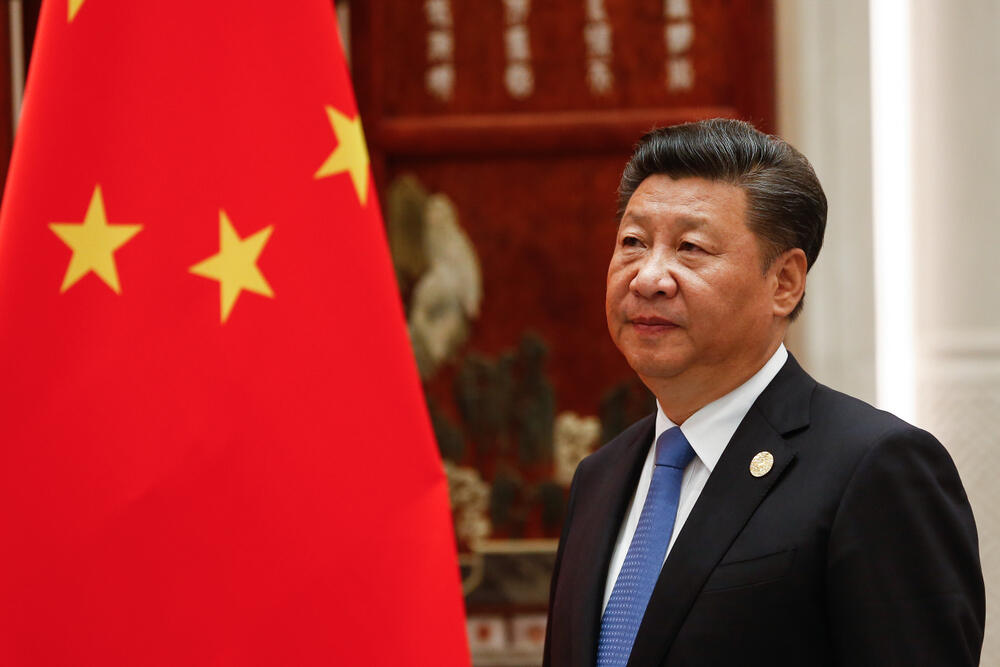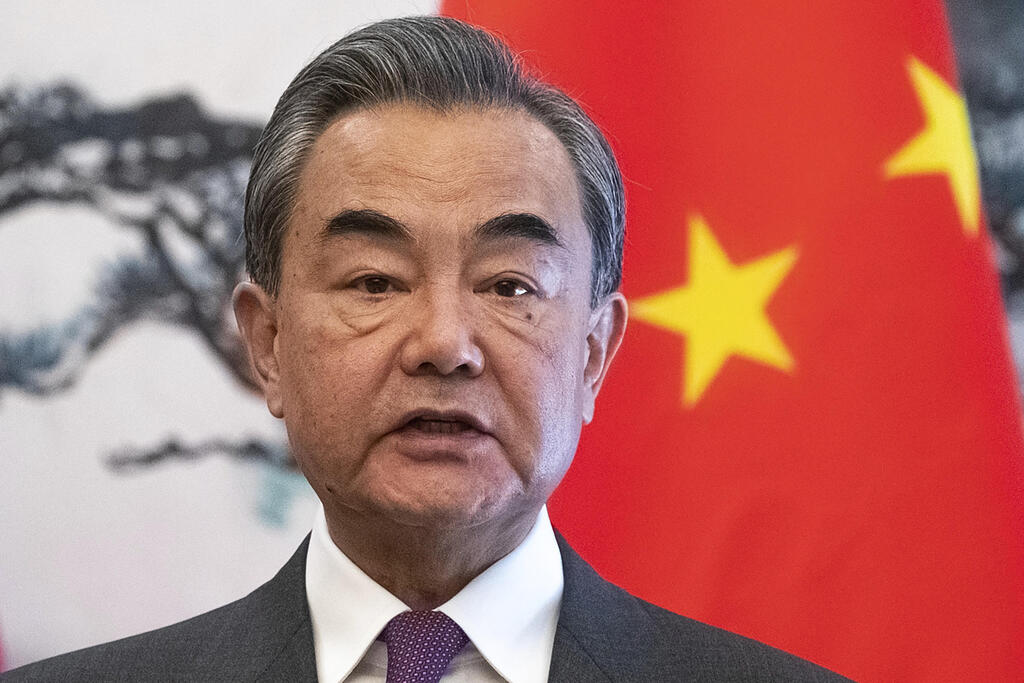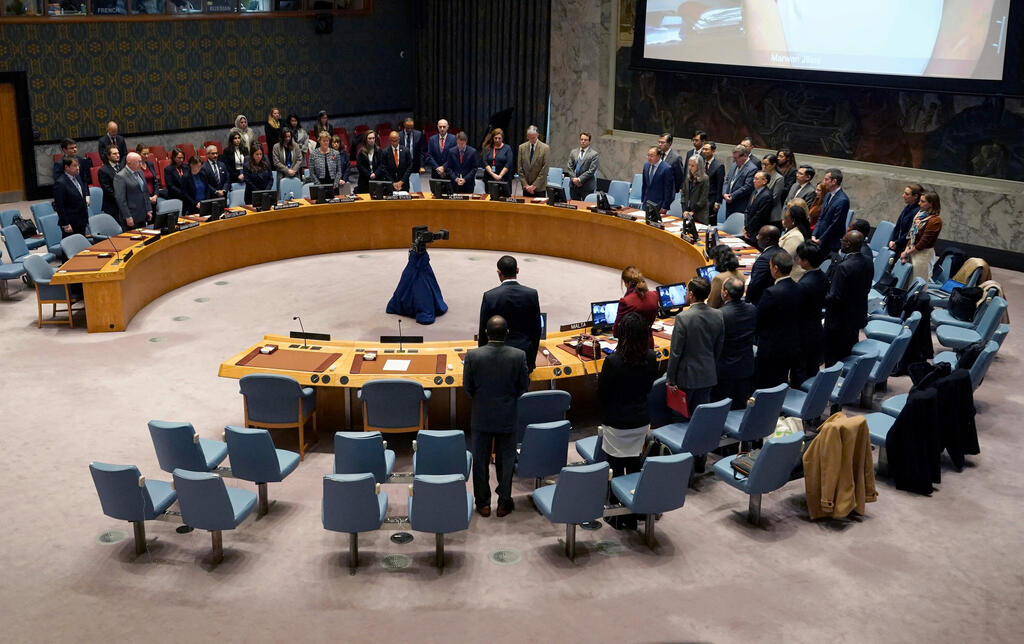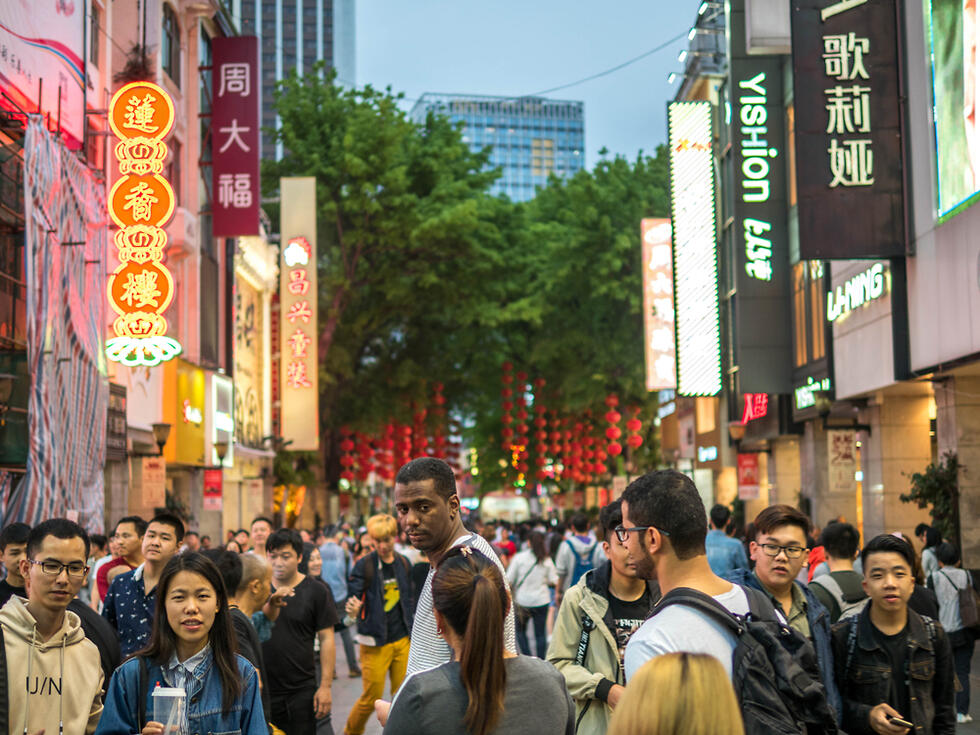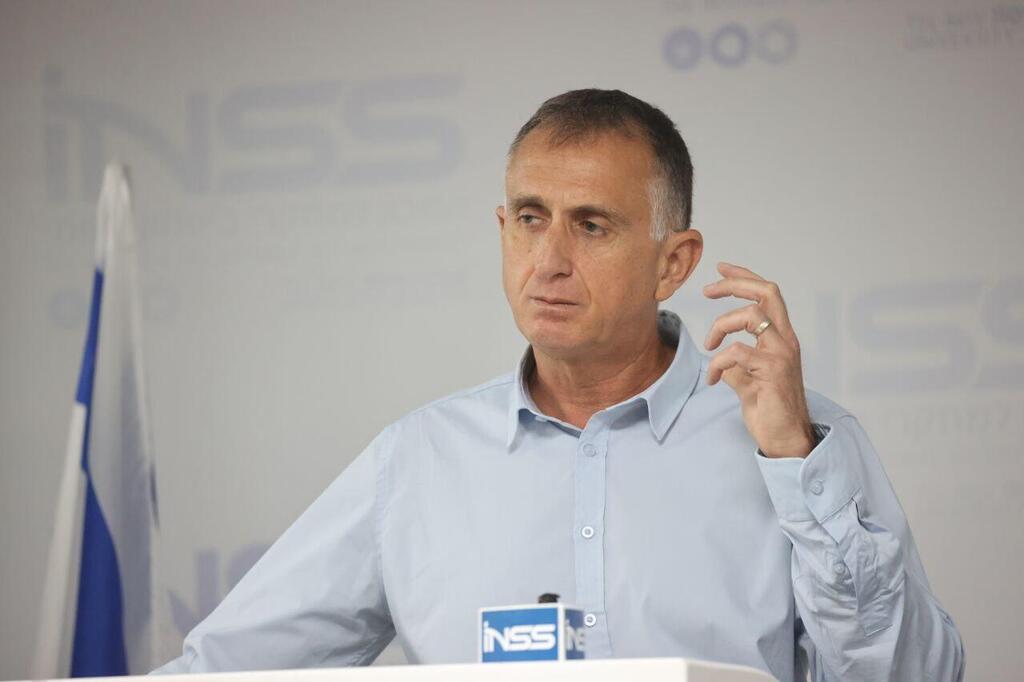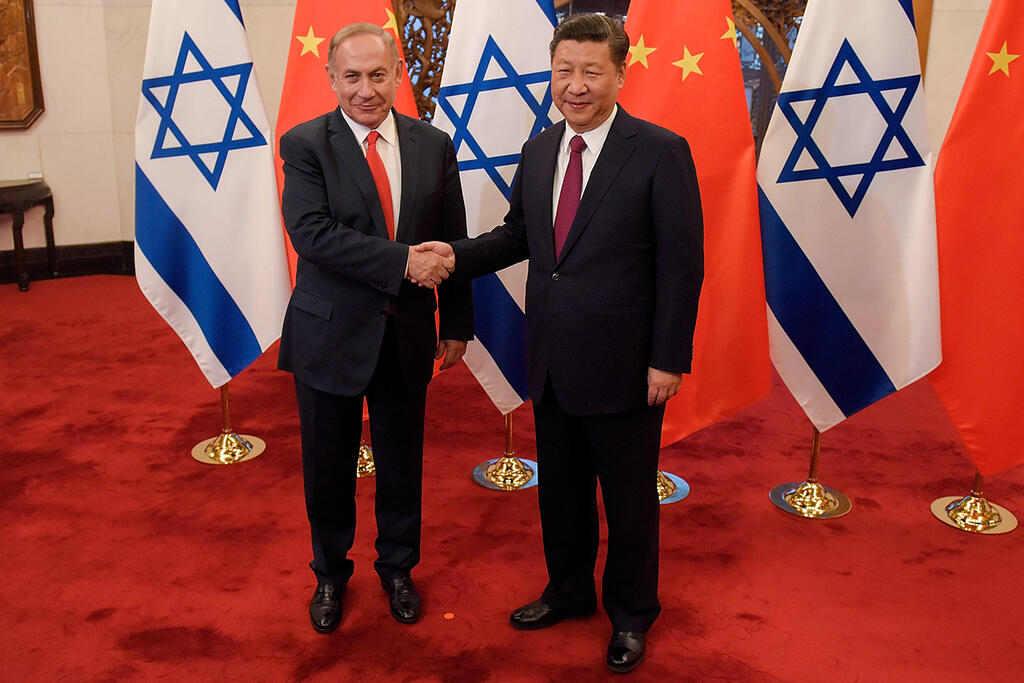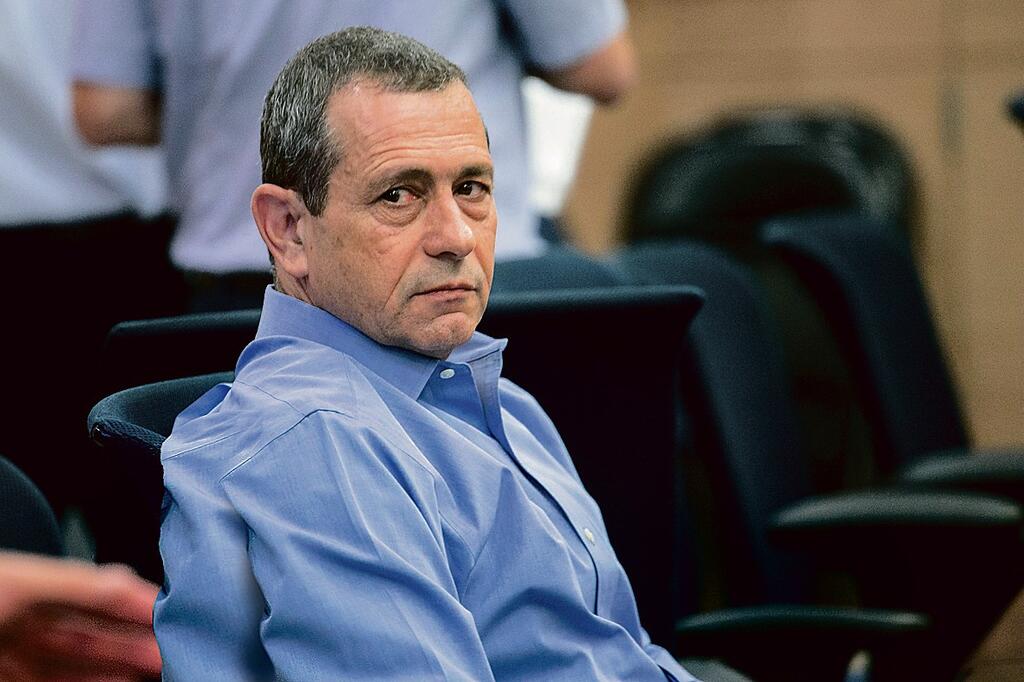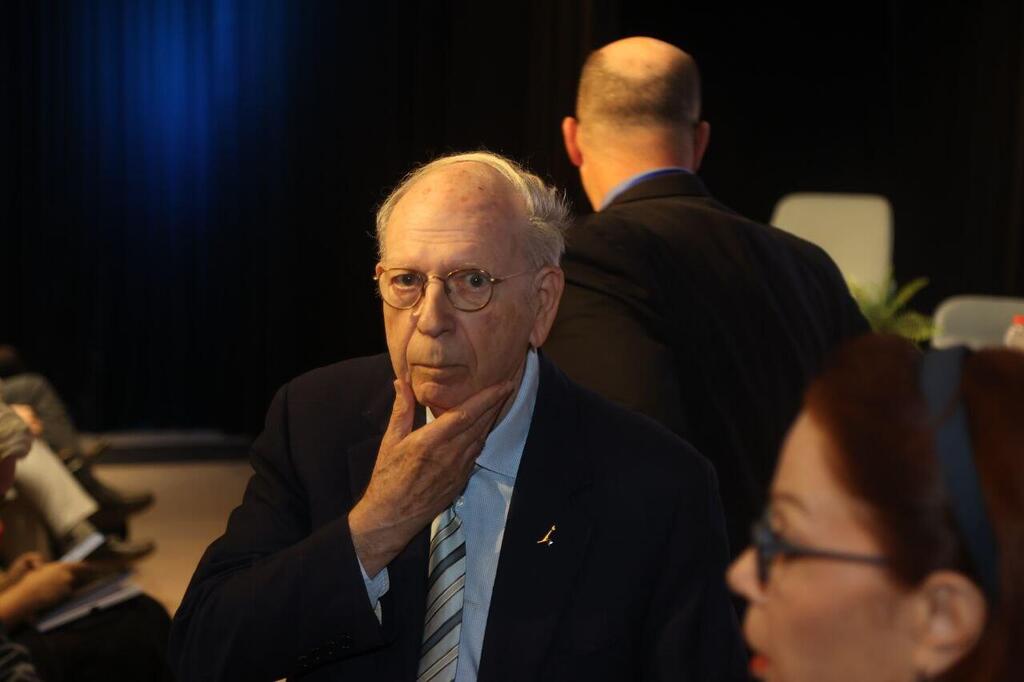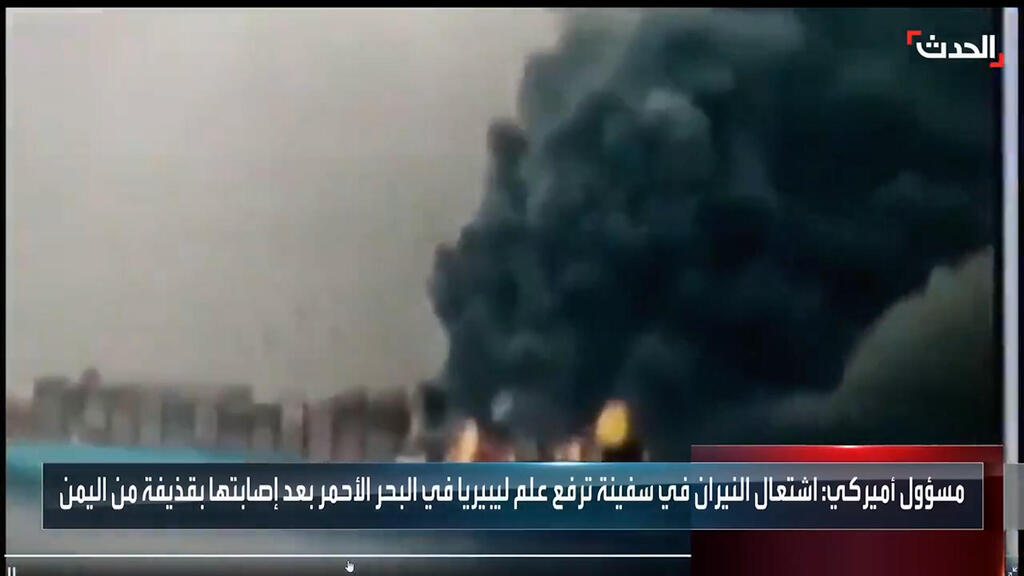The war that Hamas initiated with its murderous surprise attack on October 7 unraveled many established beliefs and assumptions in Israel, notably regarding a potential major rapprochement with China.
More stories:
Since the outbreak of the war, Beijing has not only demonstrated a clear pro-Palestinian position but also shown support for Hamas. While China traditionally aligns with the Palestinians internationally, it has intensified its rhetoric in the past few months, particularly highlighting the Palestinian refugees' right of return.
In November, as the rotating president of the UN Security Council, China led several emergency discussions aimed at condemning Israel and defending its ally, Iran. The Chinese government did not condemn Hamas for the October 7 atrocities and, along with Russia, blocked a Security Council resolution that would have condemned the terrorist group.
Since the early days of communist rule, China has opposed Israel in the UN and acted similarly during Israel’s Operation Guardian of the Walls in Gaza in 2021.
Since the start of the war, Beijing has notably refrained from condemning Hamas, even after four Chinese nationals were killed on October 7. It also failed to condemn the maritime terrorism of Yemen's Houthi rebels, whose attacks affect Chinese shipping vessels in the Red Sea.
Israeli consul’s partner stabbed, China ignored
Israeli diplomats were also frustrated with Chinese authorities glossing over the stabbing of the partner of the Israeli consul by a Muslim man in Beijing in October.
Meanwhile, Chinese Foreign Minister Wang Yi discussed the Palestinian right of return with EU diplomacy chief Josep Borrell.
The Palestinian right of return has become a consistent theme in Chinese communications about the war, even featured in a speech by President Xi Jinping, where he also claimed Israel's actions in Gaza were too aggressive to qualify as self-defense.
In a rare move, Chinese Foreign Minister Wang personally conducted a Security Council discussion on the Gaza war in late November. He described the IDF's actions as "collective punishment" and the relocation of civilians within the Gaza Strip as "forced displacement." This position is notably unusual, particularly given China's proclaimed policy of non-intervention in international conflicts.
The Chinese foreign minister called for prioritizing a long-term cease-fire, warning that the Gaza conflict could escalate into a regional catastrophe. He stressed that resolving the conflict is a collective global objective.
Wang reaffirmed China's support for Palestine's complete UN membership and echoed other senior Chinese officials in recognizing the Palestinians' right of return, thereby clearly aligning with their side in the conflict and opposing Israeli interests. He remarked, "For too long, the Palestinians' right to an independent state, existence and return has been ignored," he said during the discussion.
China's stance goes beyond diplomacy, as it aligns with the Palestinians and sponsors anti-Israel propaganda on social media to sway global public opinion.
A New York Times report uncovered an unprecedented joint campaign by China, Russia and Iran to support Hamas. Additionally, recent research indicates China is leveraging this anti-Israel campaign on social media to undermine the U.S.
Burning bridges is not an option
"China practices a double standard toward Palestinian terrorism and the attacks by the Iranian 'Axis of Resistance' from Lebanon, Syria, Iraq and Yemen by fundamentally refusing to condemn it, let alone act against it, while serving as the president of the UN Security Council. A position it exploited to moralize Israel, reprimand the West, block Israeli witnesses from speaking and condemn the U.S.," says Tuvia Gering from the Israel-China Policy Center at the Institute for National Security Studies (INSS).
"China's current choice to support the right of return is a reward for Palestinian terrorism, a blatant interference in Israel's internal affairs, equivalent to Israel supporting Taiwan's independence.
“Even worse, rather than using its significant leverage over Iran as its biggest customer for sanction-bypassing oil (constituting up to 90% of Iran's oil exports), China is aligning itself with those advocating for the destruction of the Jewish state and promoting what Beijing openly calls a 'united Arab-Muslim front' in support of the Palestinians against Israel. This is before even addressing the anti-Israeli and even antisemitic propaganda that official accounts of the Chinese Communist Party and the state are echoing as part of an international campaign against the U.S. and the West."
However, Gering stresses that decoupling from a global power like China is practically impossible. "China will remain a significant trading partner, but amid the erosion of our security assumptions, Israel should awaken from its illusions about China: at Israel's most difficult hour, China has proven itself to be unfriendly," he says.
"While it had the opportunity to condemn Hamas' crimes against humanity, as most of the world did, it instead cynically exploited its own grievances to further narrow geopolitical interests.
"This conduct aligns China with the likes of Russia, Qatar and Turkey, as nations that support terrorism. Just like those countries, despite its modest size and global significance, Israel cannot afford to sever ties completely, but that doesn't mean it should be disregarded. The relationship with Israel also holds benefits for China, and there are several actions that the government has yet to take to mitigate this advantage."
Israel was well aware of China's biased position, as security experts and academics highlighted its close and extensive collaboration, including in security, with Iran.
Additionally, U.S. officials cautioned Israel about the dangers associated with partnering with China. These warnings were issued in the months preceding the war, following President Xi’s hosting of Palestinian Authority Chairman Mahmoud Abbas in Beijing, and an effort to demonstrate a balanced approach by extending an invitation to Prime Minister Benjamin Netanyahu for a visit. Netanyahu accepted the invitation, leading some to believe that these signals indicated China's growing and crucial role in the Middle East.
INSS director and former Mossad chief Tamir Hayman warned against Netanyahu's decision to visit Beijing which came at a rocky period in his relationship with U.S. President Joe Biden, who had previously postponed Netanyahu's invitation to the White House.
"China is a country that exploits opportunities. Therefore, China will see this invitation as another small victory over the U.S.," Hayman wrote in June. "China will not stop here and will seek to increase its influence over Israel, which will exacerbate tensions with the U.S. This is a resounding and bitter victory in light of Abbas's visit to China. On the surface, China creates symmetry and presents itself as objective. However, China is a clear pro-Palestinian actor. We do not want it as a mediator.”
Money laundering for Hamas
China's biased attitude toward Israel comes after a decade of economic rapprochement, during which Beijing acquired a series of strategic assets in Israel. These include the presence of cameras from the Chinese company Hikvision (which is blacklisted by the U.S.) embedded in Israel's Eagle Eye surveillance system; the management of the Haifa Bay Port by SIPG, a publicly traded company on the Shanghai Stock Exchange; the construction of the Southern Port in Ashdod by PMEC, a subsidiary of China Harbour, and the construction and operation of the Sorek desalination plant.
Chinese companies are also deeply involved in the Tel Aviv Light Rail project, and the Chinese Bright Food acquired control of major local food manufacturer Tnuva over a decade ago.
China's acquisition of strategic assets in Israel is a result of a deliberate policy by the Israeli government that began in the early 2010s. This policy was shaped by factors such as strained relations with the Obama administration, the BDS movement and the recognition of the growing importance of emerging economies, particularly China and India, in the global economy.
Consequently, Israel shifted its focus toward China. At that time, China was not a major concern for the United States, so Israel had no reason to fear upsetting Washington. The United States itself encouraged such relationships. As a result, China now holds significant stakes in Israel's critical infrastructure.
In July 2012, then-transportation minister Israel Katz visited China and signed a cooperation agreement between the two countries in the fields of transportation and infrastructure.
In 2013, Netanyahu visited China and met with the president of the China Development Bank (CDB), which provides loans for infrastructure projects in and outside China. However, the visit was marred by a controversial episode where an Israeli intelligence official was barred from testifying in the U.S. about the Chinese lender’s alleged role in laundering money for Hamas. The Chinese conditioned Netanyahu's visit on canceling this testimony.
These visits and agreements initiated Israel's policy toward China, leading to Chinese companies' high success rate in tenders in the following years. In 2015, Chinese companies entered six bids for Tel Aviv's Red Line light rail and secured five — an 83% success rate. Remarkably, in 2019, Chinese firms won all four tenders they competed in, achieving a 100% success rate. Despite these successes, numerous reports highlighted various issues with the tenders. Notably, Chinese company CNR won a contract to supply light rail cars for Tel Aviv's light rail despite lacking experience beyond China and Iran.
The unheeded warnings
China's foray into the Israeli market came with dire warnings from leading security officials, particularly former Shin Bet chief Nadav Argaman. In a 2019 closed lecture at Tel Aviv University, he explicitly warned, "China's influence in Israel could pose a threat to national security." Argaman was instrumental in preventing China from acquiring the Phoenix and Clal Insurance companies.
While his cautions were heeded in these cases by an independent regulator, other warnings were disregarded, paving the way for China's substantial penetration into Israel.
Dr. Ofer Israeli, a lecturer and senior research fellow at the Institute for Policy and Strategy at Reichman University, highlighted the security risks in a 2018 article. He detailed how Chinese control over the Haifa Port undermines Israel's relations with the U.S. and cautioned that such control poses a significant strategic and security threat.
Former Mossad chief Efraim Halevy was among the first to warn about the danger, cautioning against China's takeover of Tnuva and arguing that "China supports our most extreme enemies."
He added in a written opinion that China "refused to comply with Israel's requests not to supply our enemies with means that assist them in developing weapons of mass destruction. China is promoting massive projects in our region aimed at establishing widespread influence through ports and terminals, which could significantly enhance the capabilities of Israel's adversaries. In terms of combating extreme Islamic terrorism, China is willing to provide secure banking infrastructure to terrorists acting against Israel."
Shaul Chorev, former deputy commander of the Israeli Navy, warned on several occasions about the tangible danger of China controlling strategic infrastructure such as the Haifa Port. He also alerted to the Chinese potentially embedding spy devices within infrastructure projects they undertake.
In recent years, there has been a marked decline in Chinese investments in Israel. Despite being a leading investor from 2015 to 2018, contributions have significantly dwindled due to factors like China's economic slowdown, Communist Party restrictions on investment outflows, U.S. pressure and regional geopolitics. Chinese participation in Israeli infrastructure tenders has also decreased drastically.
Nonetheless, the potential risks associated with Chinese investments in technology and the transfer of technology from Israel to China remain real and present. Notably, the Chinese operate a research and development center in Israel.
Pressuring Iran? China needs its oil
The Gaza war directly impacts China, as Houthi attacks in Yemen disrupt its western supply routes. Carice Witte, a China specialist and executive director of Sino-Israel Global Network & Academic Leadership (SIGNAL), notes that although China has substantial economic stakes in maritime shipping, especially in the Red Sea, it lacks the interest and capacity to counter the Houthis.
She points out that China's regional military footprint, comprising merely 200 marines and a naval base in Djibouti, falls short of safeguarding Beijing's interests.
Witte stresses that despite its connection with Iran, the Houthis’ patron, Beijing's diplomatic efforts are unlikely to change the current circumstances.
"The logic behind this assumption doesn't reflect the nature of the relationship between the two," she explains, "China isn't doing Iran a favor; rather Iranian oil is crucial for the Chinese economy. In 2022 alone, China managed to stockpile about four million barrels of Iranian crude oil in its reserves, intended to hedge against the Chinese exposure to risks of sudden price hikes resulting from geopolitical upheavals."
According to Witte, "Even if China were to exert its influence on Iran by threatening to cut trade and investments, there's no guarantee Iran would comply with Beijing's demands. Tehran has crafted strategies to fortify itself against external pressures despite its vulnerability."
She adds, "In the Middle East, China will maintain a lofty discourse but proceed with caution. Beijing will continue to seize low-risk opportunities, primarily engaging in rhetoric and stances that cast the U.S. in a negative light and China positively. This approach helps China steer clear of the region's intricate conflicts, particularly those not jeopardizing its vital national security interests."




